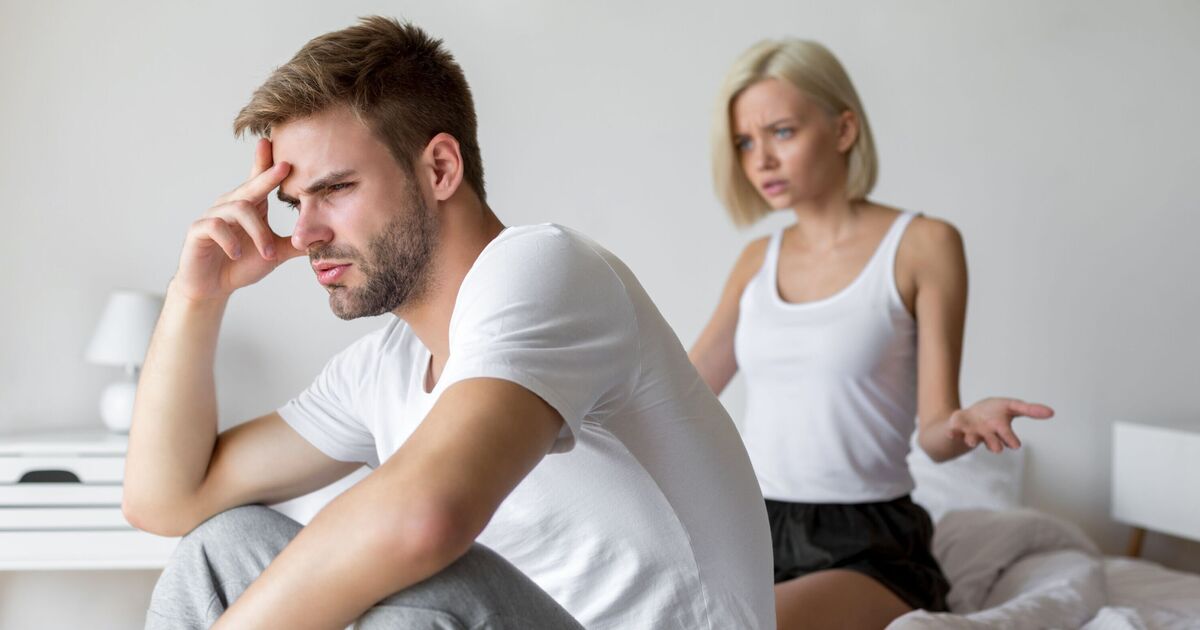There’s a secret some men won’t even share with their partner and this secrecy can have a significant impact on even the strongest relationships.
Being unable to achieve or sustain an erection long enough to have sex can be an embarrassing subject for those living with erectile dysfunction (ED) despite it being a very common health issue. In fact, it’s estimated that half of all men aged between 40-70 will suffer ED – which is also known as impotence – at some time or other and can be caused by factors including certain medications, too much alcohol, high blood pressure, high cholesterol or diabetes.
There are also psychological causes like stress, anxiety or tiredness. It can also be an early sign of a life-threatening health issue such as heart disease (where a vessel blockage or narrowing can restrict blood flow to the penis).
Although discussing it with your GP or other health professionals might sound daunting, it can help identify its cause, as well as treatment. But for many, ED remains a difficult topic to talk about. It can lead to secrets and lies between couples, with each partner easily jumping to the wrong conclusion.
Now, new research by Eroxon, an over-the-counter topical gel to treat ED, has found that a fifth of men suffering from ED have been wrongly suspected of cheating by their partner* because of a change in intimacy in their relationship. Here, leading experts explain the signs which could indicate your partner might be hiding their problems, and give suggestions of how to tackle the issue.
BECOMING MORE EMOTIONAL: “There isn’t a moment per se that can make a man emotional, it’s more that untreated ED can make your partner feel less of a man,” says Dr Catherine Hood, specialist in sexual medicine and a psychosexual therapist.
TRY THIS: “Let your partner know you’re there for them and open to listening. If they’re emotional or angry, don’t rise to it. Put yourself in their shoes – if ED is behind their heightened emotions, it can be extremely distressing for them.”
COMMUNICATION BREAKDOWN: “It’s hard for men to talk about their ED as it’s still such a taboo subject,” says GP Dr Janine David, a specialist in sexual health on Eroxon’s ED Information Panel. “They may not want to be seen as a disappointment or a letdown. In my clinic, I tell them they’re not alone. One study reported that more than a quarter of new ED cases are diagnosed in men under 40.”
TRY THIS: “If you notice changes in your partner, such as being closed off, try starting a conversation with them. Choose an appropriate time when they aren’t busy or distracted and it’s outside of the bedroom.”
LACK OF SEX: In the Eroxon survey, 37 per cent of partners of those with ED said they don’t have sex anymore. “In my clinic, one of the most common signs that a man is suffering from ED is that they’ll start to avoid sex and time in the bedroom,” says Dr Hood. “They might go to bed later than their partner or start going to the gym in the early morning to avoid intimacy.”
TRY THIS: “Sex and intimacy are an important part of a relationship for most couples. Consider medical solutions, such as Eroxon gel, which helps men get an erection in 10 minutes so it can become part of foreplay.”
LESS CONFIDENCE: “It’s a basic instinct of men to have sex and please their partner, so when they can’t, they might feel like a failure,” says Dr Jeff Foster, a men’s health specialist. “Australian researchers reported that men with ED consistently admitted feeling less of a man, which was linked to negative responses including embarrassment or fear of being stigmatised.”
TRY THIS: “Be sure to listen to your partner and make them feel appreciated. Remind them of their great qualities to help them realise how valued they are, away from the bedroom. You could try sending them a message randomly during the day to make them feel good.”
FEELING UNATTRACTIVE: According to Eroxon’s research, 56 per cent of partners of ED sufferers felt the man wasn’t attracted to them anymore. “It’s common for partners to be plagued by nagging doubts about their own attractiveness or suspicions of their partner finding sexual satisfaction elsewhere,” says Dr David.
“As they can’t please their partner in the bedroom, sufferers may feel as though their partner will go off them.”
TRY THIS: “An honest, open conversation is vital and could put you both at ease, knowing that ED is the cause. Communication is the bedrock of any relationship, and it’s particularly important for couples dealing with ED because it immediately dispels any worries about infidelity and minimises feelings of insecurity.”
LOW TESTOSTERONE: “Erections are androgen-dependent [androgens are a group of male hormones that include testosterone],” says Dr Foster. “So when testosterone levels drop, with causes including obesity, stress and even ageing, it can cause ED.”
TRY THIS: “There are ways to help boost testosterone. Encourage your partner to exercise, limit alcohol and prioritise sleep. Minimise stress by finding calming hobbies away from work or a hectic family life.”
DEPRESSION: “If a man has depression, they have a greater risk of ED according to research,” says Dr David. “This could be due to increased anxiety or certain antidepressant medications. But ED can also cause a man to feel depressed as they feel their masculinity is being affected.”
TRY THIS: “If you’ve noticed your partner showing signs of low mood, being more reserved, tired, or losing interest in hobbies, it’s wise to broach the subject. Pick a time and calmly tell them you’ve noticed they’ve not been their usual self lately. Make sure they know you’re there for them and have zero judgement. Therapy is always an option – always offer to go with them so they are not alone.”
INCREASED STRESS OR ANXIETY: “ED undoubtedly has a knock-on effect on many other areas of men’s lives,” says Dr Hood. “A systematic review published in the International Journal of Impotence found that 37 per cent of men with ED had an anxiety disorder.
“It can be stressful not being able to perform and this doesn’t fit the typical male stereotype.”
TRY THIS: “There’s evidence that partners who openly share their stress are more satisfied with their relationship. Encourage your partner to try stress-relieving tactics like deep breathing, calming exercises such as yoga, no tech before bed and even writing down how they feel.”
WEIGHT GAIN: “Emotional eating is common as ED sufferers feel more anxious and stressed, so turn to food as a comfort,” says Dr Hood. “And being overweight can affect testosterone levels, leading to potential ED, so it’s a bit of a chicken and egg situation.”
TRY THIS: “Managing weight gain is vital for health, so get active with your partner by joining a sports club while encouraging balanced eating.”
USING PORNOGRAPHY: “ED sufferers often turn to pornography to try and spark desire, although if the problem is psychological, health or hormonal-based, it won’t have much of an impact,” says Dr Foster. “He may be desperately trying to quash the idea he has ED, however, you might not see it that way. You may feel unattractive and unwanted.”
TRY THIS: “Broaching this with your partner is important. If they open up about their ED, reassure them there’s a solution.”
OTHER HEALTH CONCERNS: “Heart problems and ED often go hand-in-hand, because vascular damage and an impaired blood supply to the penis is one of the most common causes of erection issues,” says Dr David. “Plus, if the ED sufferer has a heart condition, or has already experienced a heart attack, it’s understandable to feel anxious, which can undermine their sex drive.”
TRY THIS: “If your partner suffers from a heart issue or is on medication for a health problem that’s causing ED, encourage them to speak to their doctor. They may be able to change their meds.”
DRIFTING APART: “A lack of closeness can really weaken a relationship,” says Dr Foster. “ED may make the sufferer feel like they’re no longer needed as they can’t satisfy their partner so they automatically distance themselves.”
TRY THIS: “Open communication is key so try doing activities together away from the bedroom. Bond over dance lessons or take up a sport together. Closeness doesn’t just come from having sex, so prioritise time together as a couple.”
*The survey, carried out on behalf of Eroxon.co.uk in January 2024, involved 1036 ED (721 men with a history of ED) sufferers and their partners










